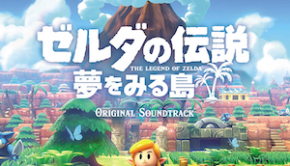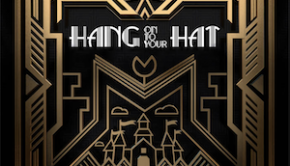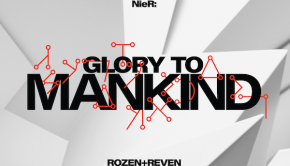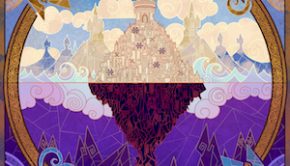Hero of Time (Music from “The Legend of Zelda: Ocarina of Time”)
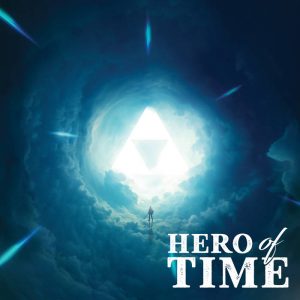 |
Album Title: Hero of Time (Music from “The Legend of Zelda: Ocarina of Time”) |
| Record Label: Materia Collective | |
| Catalog No.: MCOL-0023 | |
| Release Date: March 27, 2017 | |
| Purchase: Buy at Bandcamp |
Overview
Two decades ago, the hero of time set out on a quest to transcend time with music.
Well, Link: mission accomplished. This November, The Legend of Zelda: Ocarina of Time will turn twenty – and the years since its debut have been filled with covers, arrangements, and tributes to what many gamers consider one of Koji Kondo’s most timeless musical scores.
One particular passion project from March of last year merits returning to now. Dubbed Hero of Time, Eric Buchholz’s orchestral arrangement album serves as a sweeping cinematic retelling of Ocarina of Time through a diligent reworking of its musical themes.
Why reflect on this now? Well, a certain other Zelda game – released in March of last year, no less – is only a few days away from the release of its own official soundtrack; and that soundtrack stands poised to change the musical direction of the franchise forever. You’ll hear our thoughts on the music of Breath of the Wild in due time. For now, Hero of Time invites us to return to a body of music that set the trends which Breath of the Wild bucked. With twenty years of perspective and the Slovak National Symphony Orchestra at his fingertips, has Eric Buchholz succeeded in giving fans new reason to celebrate an old gaming treasure?
Body
By now The Legend of Zelda is no stranger to orchestral treatment, having been honored by a slew of Symphony of the Goddesses performances worldwide over the past six years. Comparisons between these arrangements and those found in Hero of Time may be inevitable, but they’re not exactly apt. Symphony of the Goddesses is, by design, a sampler of The Legend of Zelda’s greatest musical hits over the years in medley form. The focus is broad, and the arrangements are often so deferential to the songs they contain that they steer clear from contributing fresh ideas to the narrative. In this regard, Hero of Time is a very different beast. Eric states his goal in the album description of making “a single, cohesive experience” out of Ocarina of Time’s soundtrack. With this mission in mind, Eric continually reworks Koji Kondo’s compositional material as needed to retell the story of Ocarina of Time as a standalone listening experience.
The titular opening track alone proves that Eric was the right choice of arranger for the project. The “Hero of Time” overture could have merely capitalized on Zelda fans’ nostalgia for Ocarina of Time’s “Title Theme” – a wistful wind melody here, piano accompaniment there, some strings and a shimmering pad to fill out the texture – and then moved on. Instead, Eric takes the theme of the title screen music and rides straight into battle with it, with timpani rolls, cymbal crashes and rushing staccato strings elevating the tension level. That title screen tune isn’t the only classic in play, either: attentive listeners will discover several nods to the main theme of the entire Legend of Zelda series, alongside a snippet of “Zelda’s Lullaby” on flute and even a clever piano resolution based around the infamous “Puzzle Solved” cue. These references to Zelda music both in and out of Ocarina of Time are everywhere on the album, and they serve not only to tie the tunes of Ocarina of Time together, but also to tie the game’s story itself into the broader mythos of the series.
The result is that many tracks on the album demand to be treated as scenes in an ongoing story, rather than as iconic tunes refurbished in isolated display cases. There’s a near constant sense of forward momentum in play as Hero of Time searches for the next story beat, often mid-track. “The Man with Evil Eyes,” introduces the menacing theme of Ganondorf in Studio Ghibli style, moving strings chromatically in parallel intervals over traditional Japanese percussion. Yet when the tremors reach their zenith, the track switches gears to tender lamentation in reference to the sacrifice of Link’s mother – a moment merely alluded to in the game itself. “Fateful Morning” re-contextualizes the “Kokiri Forest” theme with a fresh chord progression evoking both the vastness of the land of Hyrule and the looming gravity of Link’s quest. “Princess Zelda” takes similar care of the “Zelda’s Lullaby” theme, contrasting contemplative and apprehensive moments with an adventurous jig in the vein of “Romance in the Air” from Skyward Sword. By the time “The Legendary Blade” has finished chronicling Zelda’s desperate escape from the Hyrule Castle and Link’s resolution to enter the Temple of Time to claim the Master Sword as his own, newcomers to the franchise can rest assured that Hero of Time will tell them the full story of Ocarina of Time with no prior context necessary. Longtime fans, meanwhile, can rest assured that the soundtrack they hold dear has been repurposed with love and respect.
Most tracks revisited on the album work in this same fashion. Whether transforming the easy-going “Kakariko Village” theme into a violin-driven tear-jerker or thrusting the “Gerudo Valley” theme into a blazing sandstorm of percussion and Spanish guitar, several classics undergo metamorphoses – some more drastic than others – to move the story forward. Not all do, mind: “Hyrule Field” stays the same rollicking course it did twenty years ago, and the “Lon Lon Ranch” arrangement by Kristin Naigus and Patti Rudisill is contented as a self-contained guitar, violin, ocarina and oboe quartet. Yet the vast majority of the album is as lavish and imaginative as the “Castle Town Market” arrangement, a conversion so compelling that it could have been the backdrop of an opening number in a Disney musical . While Eric took primary responsibility for these arrangements, credit is also due to Wayne Strange for his contributions to the album, including a meditation on the “Minuet of the Forest” and “Forest Temple” themes as well as a riveting reimagining of the “Last Battle” theme. Additionally, David Peacock deserves a shoutout for his brilliant Debussy-esque take on the “Serenade of Water” and “Water Temple” themes.
Rich composition, a dynamic emotional palette, and smart use of Zelda motifs make Hero of Time a satisfying Ocarina of Time revival – and the various takes on classic boss themes make the album a surprising revival to boot. Nowhere in the original soundtrack was taiko drumming implied as part of the sound-world, but “Dungeon Dwellers” and “Great King of Evil” apply a heavy dosage of taiko to great calamitous effect. “Feast of the Fire Dragon,” on the other hand, reserves its calamity and chaos for the tail end of the track, parsing out piano phrases in a calculated manner before lighting the string section on fire. Even in these moments when the tension ramps up, Hero of Time finds ways to subvert expectations and remains playful with its source material.
Summary
The past two decades have seen the rise of countless fan contributions to Ocarina of Time’s musical legacy. Hero of Time ranks among the top of the bunch. The arrangements Eric Buchholz and his team have put together do more than celebrate an esteemed soundtrack with brimming enthusiasm: they retool that soundtrack to retell the tale of the hero of time with no assistance from the source whatsoever.
There may come a time when newcomers to the Zelda series look on Ocarina of Time as a dated relic. In the age of Breath of the Wild, that time may be fast approaching already. Yet Hero of Time serves an important role in communicating just what Ocarina of Time meant to an older generation of gamers; and, furthermore, the album proves that this twenty year old game still has plenty of life left in it.
Do you agree with the review and score? Let us know in the comments below!
5
Posted on April 23, 2018 by Reilly Farrell. Last modified on April 23, 2018.

